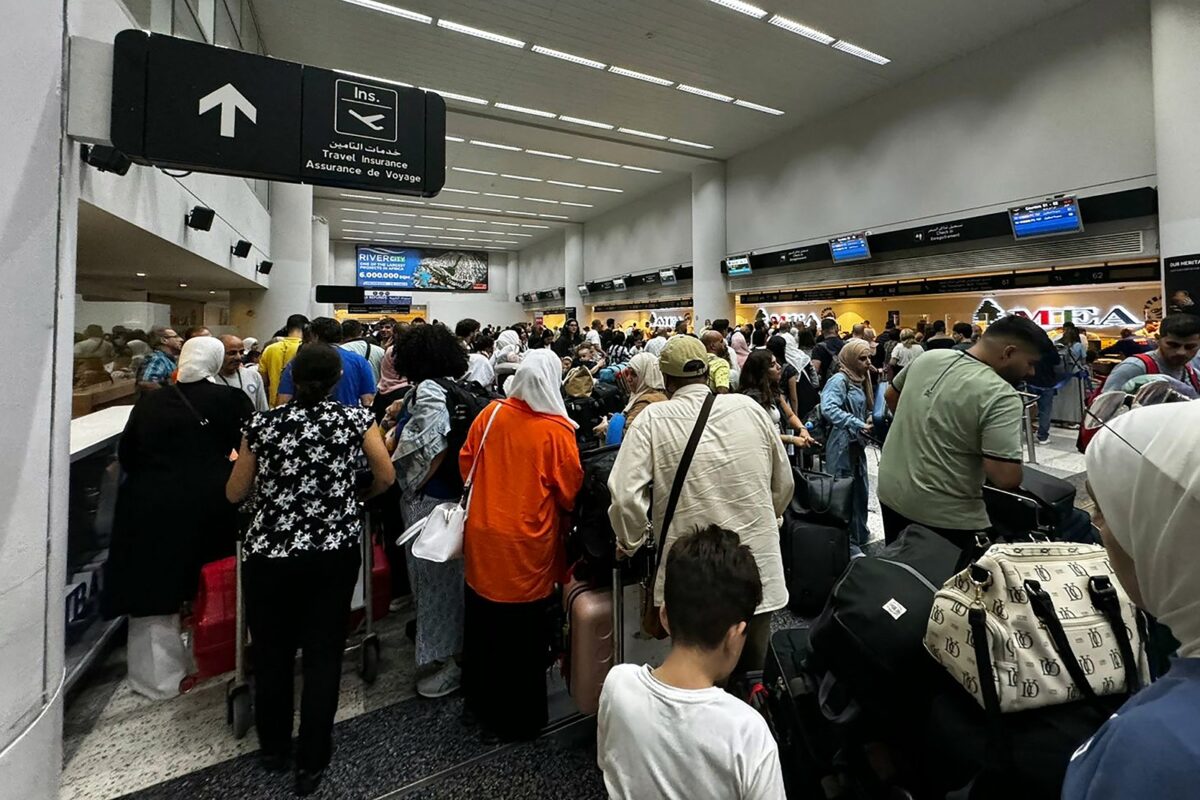
Tourism plummets in Lebanon as rising war tensions spark security fears and cancellations
Amid rising war tensions and warnings from embassies, tourists have been leaving Lebanon in significant numbers. The persistent instability presents a major obstacle to Lebanon’s attempts to rejuvenate its tourism sector and sustain its status as a prominent destination in the Middle East.
The heightened security concerns and instability have prompted several countries to advise their citizens to avoid traveling to Lebanon or to leave if they are already there.
The country’s reputation as a safe and welcoming destination has suffered, resulting in numerous cancellations and a decline in the hospitality industry. Tourists, especially those from Europe and North America, are now hesitant to visit due to security concerns.
As embassies have called its nationals to leave Lebanon, the country has faced a setback in tourism despite its economy desperately relying on the sector to generate much-needed revenue.
This downturn has significantly impacted local businesses, including hotels, restaurants, and tour operators, all of which depend heavily on tourism for income.
“Lebanon, already struggling with financial difficulties due to years of political stalemate, encountered another setback in the fourth quarter of 2023 and now extending to 2024 as a result of the spillover effects of the Israel-Gaza conflict,” Rania Bitar, Development and Tourism economist between Beirut and Dubai explained to NOW.
“This exodus has severely impacted the tourism sector, leading to a sharp drop in hotel bookings, restaurant visits, and other related activities. The departure of tourists, coupled with the reluctance of potential visitors to travel to Lebanon, has further strained an economy already grappling with numerous challenges,” Bitar added.
The intensified military confrontations in southern Lebanon led to substantial infrastructural damage, primarily impacting the tourism and agriculture sectors. This has further strained Lebanon’s crisis-ridden economy amidst a prolonged political deadlock.
Amid fears of escalating tensions in the Middle East, international airlines are steering clear of Iranian and Lebanese airspace and canceling flights to both Israel and Lebanon.
According to data from Lebanon’s Ministry of Tourism, as reported by Blominvest Bank, Lebanon’s largest lender, the number of inbound visitors dropped by 13.52 percent annually in the first quarter of this year, totaling 237,633. This decline is primarily attributed to a reduction in visitors from Europe and North America.
These warnings have led to a significant decrease in tourist arrivals, dealing a severe blow to Lebanon’s tourism industry.
“Hotels and tour operators are grappling with widespread cancellations, while local businesses dependent on tourist spending are experiencing a steep decline in revenue. The exodus of foreign visitors and the hesitation of potential tourists have further strained the already struggling economy, underscoring the vulnerability of the tourism sector to regional instability,” Sireen Amar, the Head of Hotels and Accommodations at the Ministry of Tourism in Lebanon, told NOW.
Those warnings, combined with the uncertainty associated with the conflict, have already led to a decrease in the number of passengers traveling to and from Lebanon.
Pierre Achkar, President of the Hotel Owners Syndicate, explained that since October, countries worldwide have been issuing travel advisories cautioning against visiting Lebanon.
Achkar noted that another reason visitors are rethinking their travel plans is the difficulty in obtaining travel insurance for Lebanon, which has become scarce or five times more expensive to purchase.
As many tourists have canceled their trips and bookings due to escalating tensions in the region, hotels and chalets in Lebanon have been forced to lower their prices and offer special deals to attract visitors. This move is an attempt to mitigate the sharp decline in occupancy rates caused by widespread travel advisories and growing security concerns.
By offering reduced rates and attractive packages, these establishments hope to entice both local and international travelers seeking value and safety assurances. However, the long-term effectiveness of these measures remains uncertain, as the ongoing instability continues to overshadow the allure of discounted accommodations.
Jean Beyrouthi, the Secretary General of Lebanon’s tourism institutions, emphasized the severe impact on the hotel sector, with occupancy rates plummeting below 20 percent. He also noted that restaurant patronage has been halved, while beach resorts and car rentals have experienced a comparable decline of over 50 percent.
If the conflict persists, both tourism and real estate investment will continue to decline, cutting off crucial inflows to the country. For example, the number of tourists visiting Lebanon could decrease by 900,000 between October 2023 and September 2024, leading to an estimated loss of 1.35 billion dollars in tourism revenue.
Security concerns among expats
Many Lebanese nationals who are also expatriates are choosing to leave the country due to rising security concerns. This movement reflects the growing anxiety among the expatriate community, who have deep ties to Lebanon but face difficult decisions as they weigh their security against their connection to their homeland.
“As a Lebanese expat, I recently had to make the difficult decision to change my family’s flight booking to an earlier date. The escalating tensions and the increasing fear of attacks on the airport left us feeling unsafe, so we had to cut our trip short back to France,” Dr. Ellie Daher who lives in the south of France told NOW.
“Lebanon has always been close to our hearts, but with the situation growing more dangerous, we couldn’t risk staying any longer. The uncertainty and anxiety are growing day by day, so this overshadowed the joy of being home, and leaving early seemed like the only option to ensure our safety,” Nemr Elias, a Lebanese expat who lives in Australia, told NOW.
Rodayna Raydan is a Lebanese-British journalist. You can follow her on Twitter @Rodayna_462
The views in this story reflect those of the author alone and do not necessarily reflect the beliefs of NOW.








